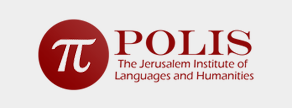Which kind of Greek is taught at Polis?
The variety of Greek taught at our courses (levels 1 to 4) is the Koine Greek of the 1st Century AD, the one of Epictetus and Plutarch, the Greek of the New Testament and the Apostolic Fathers.
What is the difference between Koine and Attic?
The differences that can be listed between Koine Greek and the Attic dialect are very few: for the first and second level taught at Polis they can be summarized in 3 or 4 pages. You will find in Polis – Speaking ancient Greek as a living language (Level One, Teacher’s volume) a summary of the differences.
Does a student who holds a BA in Classics and has followed traditional methods in order to study Greek need to start with the Polis method from level 1 or can she/he skip the first level?
As our classes are in full immersion, the student learns to speak the language in order to be able to read ancient texts without translating. A student who starts level 2 is supposed to be able to introduce himself or herself in Koine Greek, to say what his or her hobbies are, to say what his or her studies are, to describe his or her family, to be able to buy something speaking ancient Greek. According to our experience, students who already held a BA in Classics took great benefit in starting again from level 1, as they learnt finally to internalize the language. Once they had completed the first level, they were able to read easy narrative Greek texts in a way that was for them impossible before.
Conversely, we got bad experience with students who insisted in skipping level one on the grounds that they had studied already all the grammar of the ancient Greek language: in the end, they fared poorly in level 2. So unless one already talks ancient Greek at some level, we do recommend students who never took any course of living ancient Greek to register at the first level.
Why focusing in speaking ancient Greek if the goal is only to become able to read ancient texts?
Our goal when we speak ancient Greek is certainly not to learn to speak an ancient language for the sake of it, but to be able to read ancient texts without translating. We do not see it possible to reach that goal without speaking the language first and that is why we have adopted that method.
We consider it very unlikely that someone could ever manage to read any ancient Greek text directly at some speed without learning first to speak the language.
Which level shall I reach after two years of study with the Polis method?
The experience with our students is that after completing level 2 they become able to read simple narrative books in Koine Greek without dictionary and that they become able to read many other texts with the help of a dictionary but with an easiness that is impossible to get through traditional methods.
What is the unique character of the Greek courses at Polis?
Polis is one of the very few institutions in the world, if not the only one, which promotes Koine Greek not online courses where one can internalize from scratch the morphology of the language. There are some similar courses offered online by different institutions, but the advantage at Polis is that one can have many conversations and activities (both within and outside the classes) in Koine Greek. Without practicing the language with your fellow students and with the instructor, it becomes very difficult to develop your skills.
What pronunciation is followed?
You will find an answer to that question in the PDF.
Sezione:


